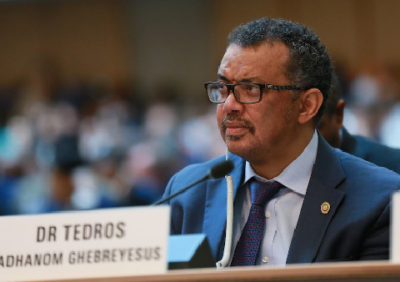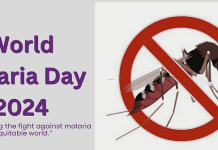The World Health Organisation published a slew of recommendations Monday on how to ensure gene editing research is used for the public good and does not get out of hand.
“As global research delves deeper into the human genome, we must minimise risks and leverage ways that science can drive better health for everyone, everywhere,” the WHO’s chief scientist Soumya Swaminathan said in a statement.
Gene editing has been revolutionised by the development of tools like CRISPR-Cas-9, which won its co-creators the Nobel Chemistry Prize last year and which can change the DNA of animals, plants, and micro-organisms with extreme precision.
Such developments carry huge potential benefits for diagnoses, treatment, and the prevention of genetic disorders, but have also opened Pandora’s Box to possibly unsafe and unethical uses.
The WHO commissioned an expert group to study the implications of human gene editing back in 2018 after a Chinese scientist controversially claimed to have created the world’s first genetically edited babies.
He Jiankui’s announcement that he had altered the DNA of twin girls in southern China by using molecular scissors – ostensibly to prevent them from contracting HIV — caused a global backlash.
Scientists cautioned that the untested procedure was unethical and potentially dangerous.

And after Russian biologist, Denis Rebrikov in June 2019 announced he wanted to make similar use of Crispr — to help deaf parents have children without the disability — the UN health agency voiced alarm.
WHO chief Tedros Adhanom Ghebreyesus urged countries to bar any further work on so-called germline genome editing, which alters the genome of human embryos and can be passed on to subsequent generations, “until the technical and ethical implications have been properly considered”.
The WHO expert group has now concluded that consideration, publishing two reports Monday following more than two years of extensive consultations.
Among other things, it stressed the need for regulation and the creation of a database to track all forms of gene manipulation, providing a full overview, including pre-clinical research.
It also called for a “whistleblower mechanism”, Swaminathan said, pointing out that this would enable people to alert the WHO if they have concerns about unethical and unsafe research into genome editing.
The WHO could then demand that the country’s authorities take action, she said.
The expert committee also called on national and regional authorities to simplify the task of supervising and spotting worrying developments in genome editing by attributing consistent keywords to different types of research.
The committee also provides concrete recommendations for how authorities should deal with very specific situations that might arise.
Among the scenarios presented is a hypothetical clinical trial of somatic human genome editing for sickle cell disease proposed to take place in West Africa.
Other scenarios include the proposed use of genome editing to enhance athletic performance, and an imaginary fertility clinic in a country with minimal oversight over heritable human genome editing offering preimplantation genetic diagnosis services to international clients.
The experts also repeatedly highlight the importance of ensuring universal access to the potentially life-saving treatments and therapies that could emerge from the technology.
Tedros, who has repeatedly voiced outrage over the dramatically uneven access to Covid-19 vaccines around the world, also insisted that the potential benefits from genome editing technologies should be reaped equitably.
“Human genome editing has the potential to advance our ability to treat and cure disease,” he said in a statement.
“But the full impact will only be realised if we deploy it for the benefit of all people, instead of fuelling more health inequity between and within countries.”
(AFP)













